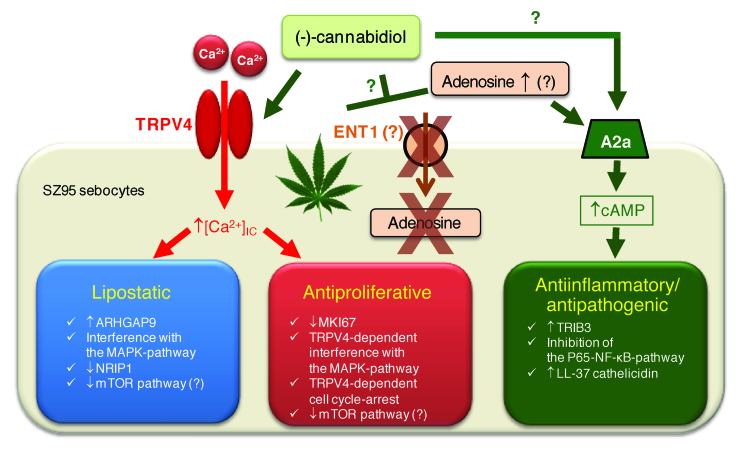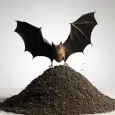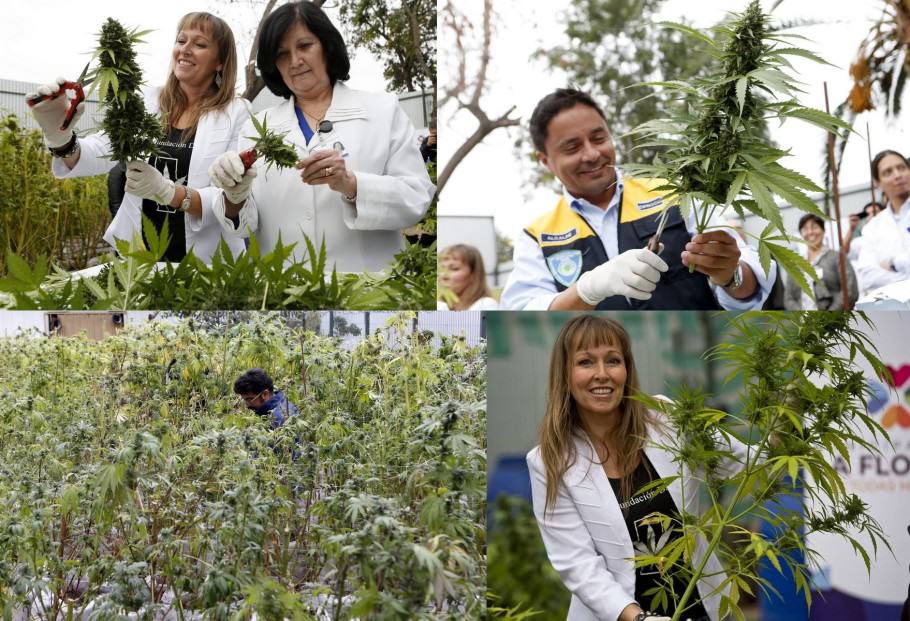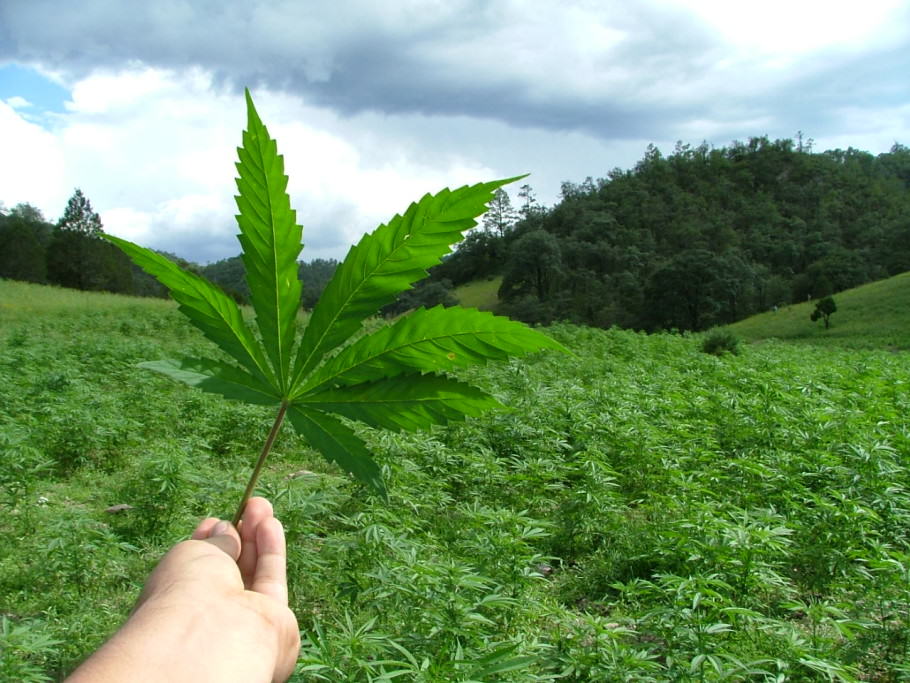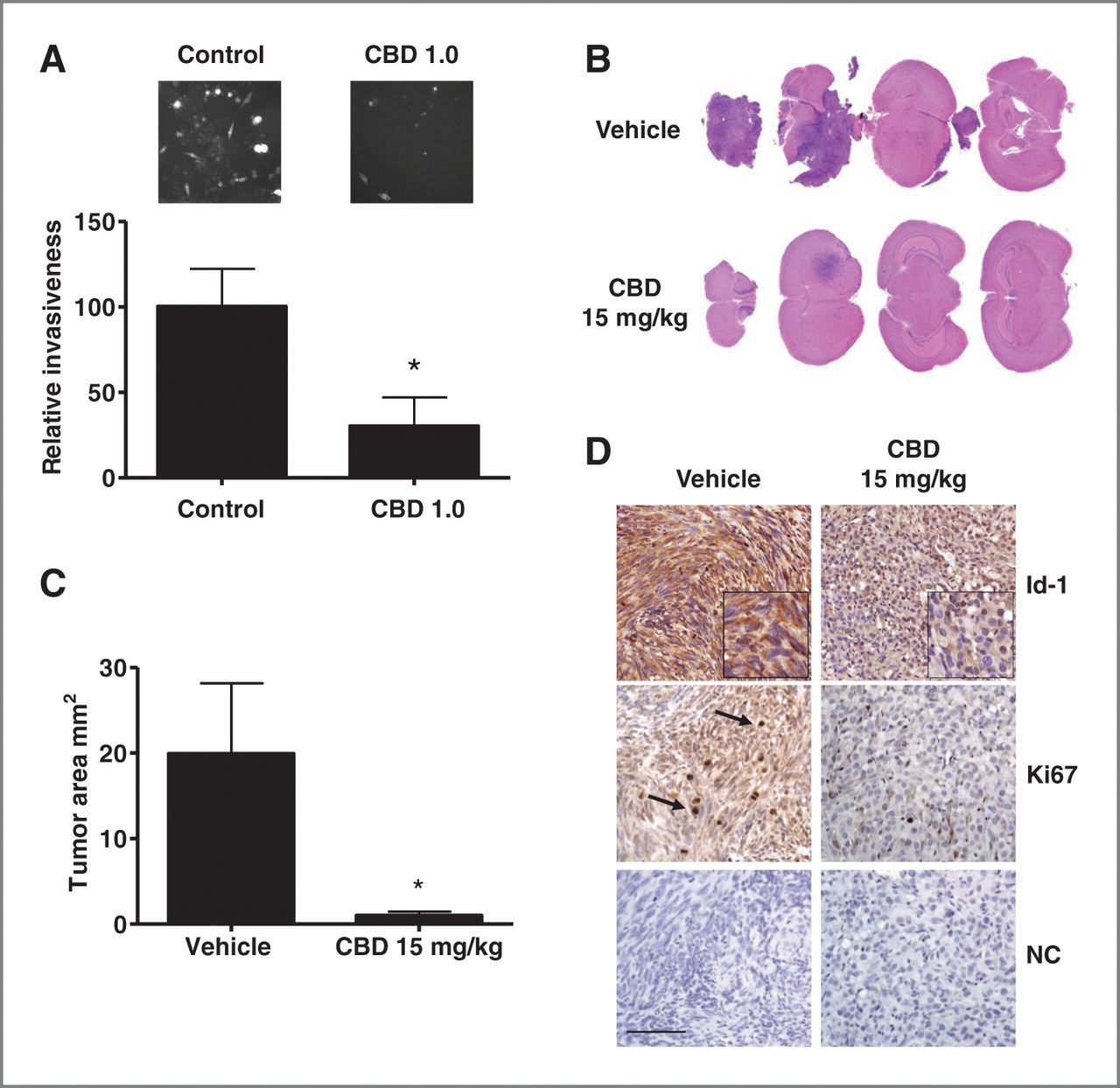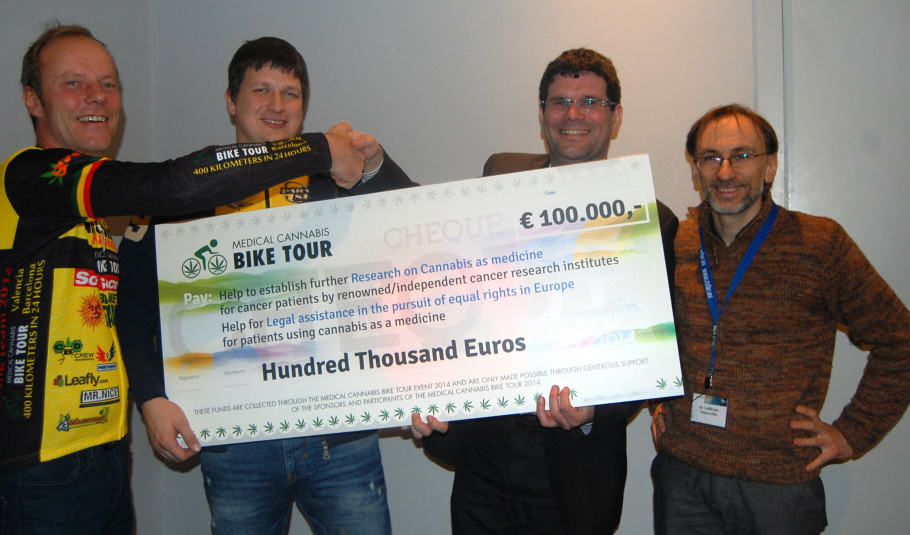Medical cannabis news - November 2014
List of contents
- The latest news on medical marijuana in the UK, Germany and Italy
- Medical marijuana reduces deaths caused by painkillers by 25%.
- The pharmaceutical industry is funding the ban on marijuana
- Third International Conference on Cannabinoids in Medicine to be held in France
- THC as a pain reliever in severely disabled children
- CBD is a natural and effective acne treatment
The latest news on medical marijuana in the UK, Germany and Italy
In the UK, a Minister called for the legalization of medicinal marijuana: Norman Baker, the Lib Dem Minister in charge of drugs policy, wrote to the health secretary, Jeremy Hunt, asking for medicinal marijuana to be decriminalised.

Baker stated: "I think it is time to reconsider the medicinal properties of cannabis, given what I've learned in my role as a Minister. I've seen more and more evidence that cannabis can provide genuine medical benefits to treat a number of conditions. There is a growing body of research that shows the medical properties of the chemical components of cannabis . I am uncomfortable that there are credible people I have met who tell me that cannabis is the only substance that helps relieve their condition but not only are they stopped from accessing it officially but have to break the law to improve their health. Other countries recognise that cannabis does have medicinal benefit and we need to look again at this subject to help people who are ill. This is a quite separate matter from the recreational use of cannabis which is not at issue here." (Source: BBC)
The Italian army will grow medical marijuana: Beatrice Lorenzin, the Italian Minister of Health, has recently approved the cultivation of marijuana for medical use, so that patients have access to treatments with cannabinoids at a more affordable price than that of imported products. The Sativex spray, for example, can have a cost of up to 700 euros, being too expensive for the Italian health service.
According to the minister of Defence, the army will be responsible for the production of medicinal marijuana within the military pharmaceutical premises in Florence, built in 1853. The Italian government plans to sell its first cannabis-based drug next summer. From 80 to 100 kg of active ingredients of marijuana will be produced each year to meet the needs of local pharmacies and hospitals around the country.
Umberto Veronesi, former Italian Minister of Health, states that "marijuana is an excellent product, a sedative that fights nausea and vomiting. However, as it is classified under the category of narcotic substance, people are still a little afraid to use it." (Source: La Stampa)
In Germany, several patients have been allowed to grow their own medical cannabis: For the first time in Germany, 3 patients were allowed to grow their own marijuana plants to be used as a treatment for their condition. They already had permission to buy medical marijuana in a pharmacy, but the price was too high for them, so the German justice system allows these patients to grow their own medication, provided that no other person has access to that product.
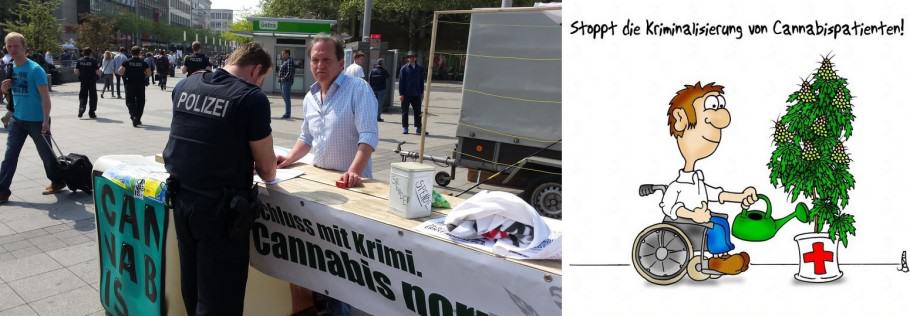
After having approved it, Stefanie Seifert -spokeswoman of the court in Cologne - said: "Until now it has not been legal for anyone to grow cannabis at home, but these seriously ill people will now be allowed to."
Petition for the decriminalisation of medical marijuana in France: while the situation has gradually changed in neighbouring countries, in the country of human rights, medical marijuana is unfortunately still taboo, unknown and misunderstood, particularly by politicians. No matter who is in office, those in power don't seem to have the courage needed to take up responsibility and finally start a real public debate on the matter.
The only exception in France is Sativex, a drug that will not be available until 2015 and will be restrained for a very tiny number of patients who will be able to benefit from the therapeutic properties of marijuana: it will only be available for multiple sclerosis patients, and always as second option (if the first treatment doesn't work). This is only a new gift to the Ministry of Health's friends in the pharmaceutical industry at the expense of thousands of patients who ask for nothing more than to have access to marijuana plants in their natural form.

Medical marijuana reduces deaths caused by painkillers by 25%.
A lengthy study conducted between 1999 and 2010 throughout the United States, shows that mortality from painkiller overdose was reduced from 24.8% in the 13 states where medical marijuana was allowed, compared to the states where it was banned. Painkillers, most of which are made from opiates, are extremely addictive, forcing many patients to regularly increase the dose too much, something that can lead to death. (Source: JAMA Internal Medicine)
Marijuana allows several patients to reduce the consumption of pain relievers, enhancing their effect by acting in different ways. Some patients were able to completely quit their treatment as well as to forget the severe side effects resulting from it.
The US Centers for Disease Control and Prevention report that today more US citizens die as a result of anti-pain medication overdose (more than 16,000 deaths from overdose every year) than the total of deaths caused by cocaine and heroin. We take this opportunity to remind that the marijuana therapeutic index (ratio between the effective dose and the lethal dose) is one of the highest in the world, so it is impossible to die from a marijuana overdose.
Medical marijuana allowed in Colombia and Chile
Colombia: President Juan Manuel Santos has just introduced a bill to legalise medical marijuana. He states that this decision is "a practical, compassionate measure to reduce the pain (and) anxiety of patients with terminal illnesses, but also a way of beginning to strip from the hands of criminals the role of intermediary between the patient and the substance that allows them to relieve their suffering". It's worth noting that possession of small amounts of marijuana for personal use (up to 20 grams) is allowed in Colombia. (Source: AP)
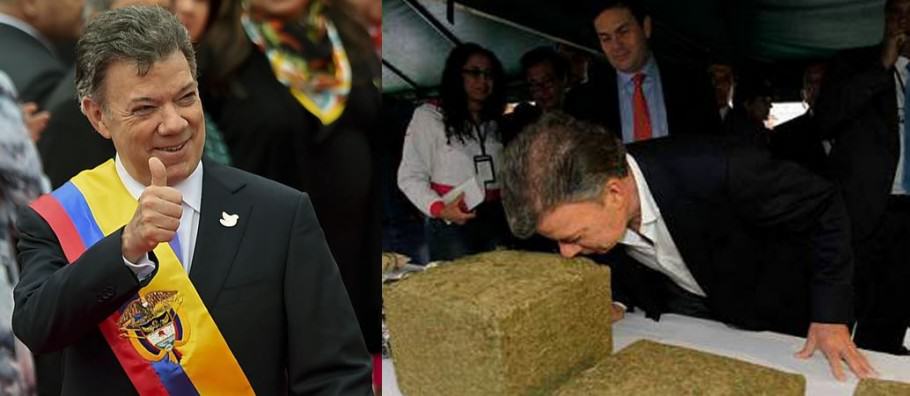
Chile: The city of La Florida, located south of Santiago, has been authorised to produce medical marijuana oil , which will be distributed free of charge to people diagnosed with cancer. A total of 416 marijuana plants will be grown in this town, and the entire crop will be transformed into oil and distributed among the 200 patients. (Source: Tele Sur)
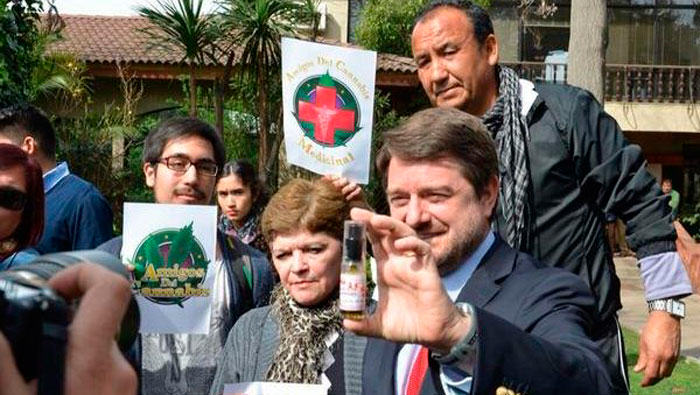
The pharmaceutical industry is funding the ban on marijuana

The American newspaper The Nation revealed confidential financial information about opposition parties against marijuana in the United States, such as CADCA (Community Anti-Drug Coalition of America) and the Partnership for Drug-Free Kids: funding is largely provided by the pharmaceutical industry.
One of the main opponents of marijuana-law reform is Purdue Pharma, the manufacturer of Oxy-Contin; Abbott Laboratories, the manufacturer of the opioid Vicodin; Alkermes, which distributes a powerful and extremely controversial new painkiller called Zohydrol (10 times stronger than Oxy-Contin); Jansen Pharmaceuticals, which sells the painkiller Nucynta, and also Pfizer, manufacturer of several opioid products. (Source: The Nation)
Third International Conference on Cannabinoids in Medicine to be held in France
The group iCare UFCM is organising once again this year's International Conference on Cannabinoids in Medicine, which will be held on 22 October, 2014, at the Faculty of Medicine in Strasbourg. Over 150 health professionals will gather together to discuss the pharmacological advances in the therapeutic use of cannabis.
Among others, the conference will see the participation of Dr Manuel Guzman from the University of Madrid, who is renowned for his research on cannabinoids against cancer; Dr Raphael Mechoulam, who isolated THC in 1964, will come all the way from Israel to talk about the importance of cannabinoids in the future of medicine; and also our friend Sebastien Béguerie from UFCM, who will present the legal CBD-based cannabis products.
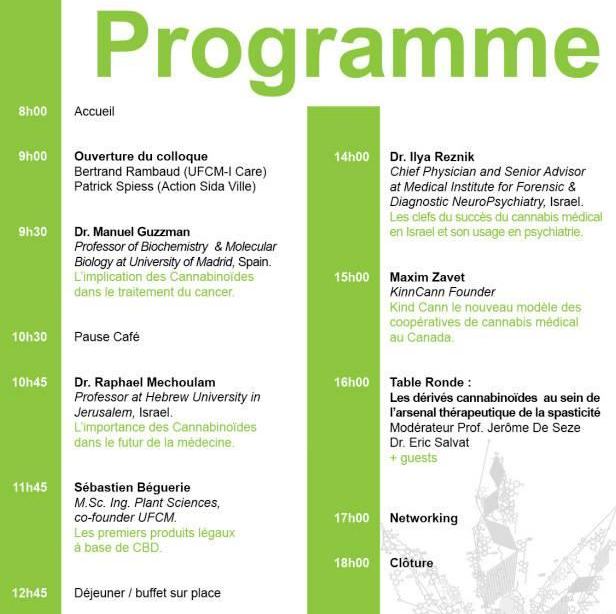
This conference will provide an opportunity for researchers, health professionals, international experts and, of course, patients, to meet and discuss the developments on marijuana research in Europe. (Source: UFCMed)
THC as a pain reliever in severely disabled children
A doctor from the Saarland University Hospital, in Germany, carried out a study in a group of 17 children aged from 6 months to 17 years, who suffer from pain, shaking and severe spasticity (10 children suffering from cerebral palsy, 2 cases of leukodystrophy, 3 children with metabolism disorders, and 2 children who had a hypoxic-ischemic bran injury). They were given THC doses ranging from 0.1 mg to 1.1 mg per kilogram of body weight.
In total, 16 children saw their pain decrease significantly, 14 of them reduced their spasticity, and 12 felt an improvement concerning shaking and trouble sleeping at night. The dose of opiates in 5 children was reduced, and in 2 children, painkillers were completely withdrawn. (Source: Thieme)
CBD is a natural and effective acne treatment
A new study published in the Journal of Clinical Investigation shows that cannabidiol exerts sebostatic and antiinflammatory effects on human sebocytes, which makes it an effective treatment for acne pimples. This study confirms the excellent results obtained with Trompetol marijuana ointment (5% CBD) in the treatment of acne. (Source: The Journal of Clinical Investigation)
